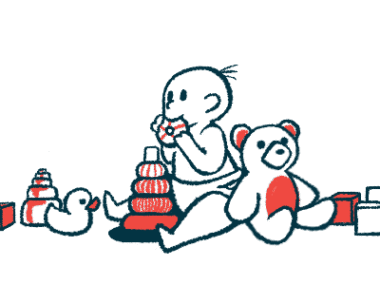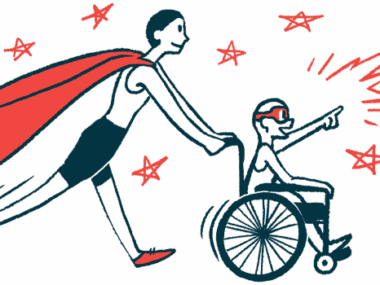Dravet children sought in US for clinical trial testing zorevunersen
EMPEROR study open to patients 2-17 having seizures despite treatment
Written by |

A Phase 3 clinical trial testing the therapy candidate zorevunersen for Dravet syndrome is now recruiting children who still experience seizures despite being on stable treatment with antiseizure medications.
The study, dubbed EMPEROR (NCT06872125), is open to pediatric patients ages 2 to 17. Enrollment is ongoing at several U.S. sites; additional sites in the U.S. and Japan are expected to also recruit participants in the future. The double-blind trial is funded by Stoke Therapeutics, which is leading the development of zorevunersen as part of an agreement struck earlier this year with Biogen.
Participants in the EMPEROR study — expected to number about 150 altogether — will be randomly assigned to receive zorevunersen or a sham treatment, given as four injections into the spinal canal over the course of about a year. For patients administered zorevunersen, the first two injections will be given at a dose of 70 mg, and the next two at a dose of 45 mg.
In a presentation at 16th European Paediatric Neurology Society (EPNS) Congress, held last month in Germany, Stoke and Biogen shared an analysis of data from earlier clinical trials that supports the potential of this dosing regimen to help improve measures of cognition and behavior in patients.
“Effects on behavior and cognition are a key secondary endpoint in our Phase 3 EMPEROR study,” Barry Ticho, MD, PhD, Stoke’s chief medical officer, said in a company press release. “Feedback from caregivers and clinicians, and analyses like this one, give us insight into which assessments have the greatest potential to demonstrate meaningful effects for patients within the year-long treatment period.”
EMPEROR trial of zorevunersen to also open future sites in Japan
Dravet syndrome is caused by mutations in the gene SCN1A, needed to make a protein that forms a subunit of a sodium channel called NaV1.1, which helps regulate nerve signaling. In people with Dravet, SCN1A mutations cause the NaV1.1 protein to be dysfunctional, resulting in abnormal nerve signaling that leads to seizures and other disease symptoms.
Everyone inherits two copies of the SCN1A gene, one from each biological parent. In Dravet, only one copy of the gene carries a mutation; the other is healthy but cannot fully compensate for the mutated copy.
Zorevunersen, previously known as STK-001, is designed to increase the activity of the healthy SCN1A gene copy to allow production of more functional NaV1.1 protein that can help normalize nerve signaling.
Most patients with Dravet syndrome continue to experience seizures despite treatment with the best available antiseizure medicines, and there are currently no medications approved that address the underlying cognitive and behavioral aspects of the disease.
The experimental therapy has previously been assessed in the Phase 1/2 studies ADMIRAL (ISRCTN99651026) and MONARCH (NCT04442295). The two tested various doses of the therapy. Participants who completed these early studies could continue to receive treatment in long-term extension studies called LONGWING (ISRCTN12811235) and SWALLOWTAIL (NCT04740476).
Data from the Phase 1/2 trials and extension studies showed that zorevunersen leads to a reduction in seizure frequency that is sustained with long-term treatment. The main goal of the EMPEROR study is to confirm that the therapy can reduce seizures after about six months of treatment.
“Most patients with Dravet syndrome continue to experience seizures despite treatment with the best available antiseizure medicines, and there are currently no medications approved that address the underlying cognitive and behavioral aspects of the disease,” said Katherine Dawson, MD, head of the therapeutics development unit at Biogen. “We look forward to continuing to work together to advance zorevunersen as a potential first-in-class disease-modifying medicine for Dravet syndrome.”
Earlier trials showed experimental therapy may aid cognition, behavior
Findings from the earlier trials also suggested that zorevunersen may help normalize measures of cognition and behavior. The new analysis, which covers data on patients in ADMIRAL and LONGWING, indicated that these improvements were seen in patients who received zorevunersen at the dosing schedule that’s now being used in EMPEROR, according to Biogen and Stoke.
Improvements specifically were seen in the Vineland-3 Adaptive Behavior Scales, a standard measure of behavior and cognition that is being used as a secondary endpoint in EMPEROR. Zorevunersen treatment led to improvements on this scale in subdomains related to receptive and expressive communication, interpersonal relationships, coping skills, and personal skills.
According to Andreas Brunklaus, a zorevunersen study investigator at the University of Glasgow, “the zorevunersen data give us early evidence that this new genetically-targeted approach could address the underlying cause of Dravet syndrome, resulting in additional seizure control and [offering] patients the opportunity to experience improvements in cognition and behavior.”
The EMPEROR trial is expected to run through 2027.






